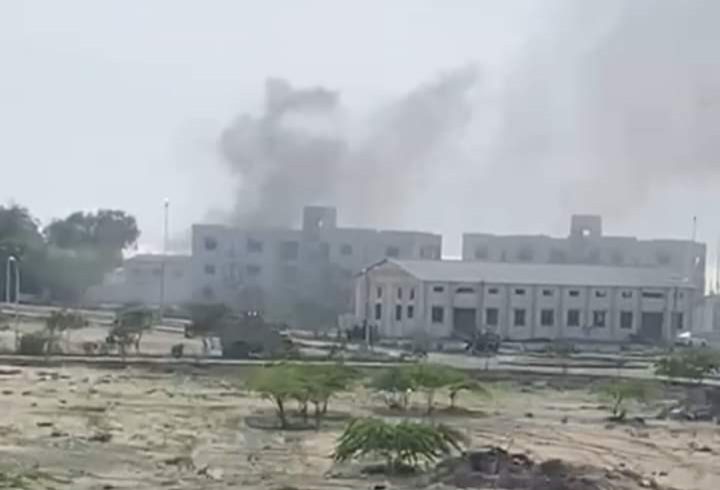Women’s political activities are increasing in the Baloch society. The participation of Baloch women and students in the movement is increasing day by day. Thus a powerful force has emerged in the Baloch movement with its skills and abilities. Baloch women are playing a vital role in hunger strikes, protests and long marches. This is the biggest success of the ongoing Baloch movement. A new chapter in the movement has begun and now no power in the world can sabotage it. It has become an ideological movement.
This organizational development has founded the movement on scientific grounds and it does not consist of one gender. Rather, men and women have become one for the purpose. Nor does this movement revolve around a single person. Rather, it is running as a whole organizational structure. The currently running movement is 23 years old and the phase has created a second generation of supporters. Now this generation also exists among women.
The Baloch Students Organization (BSO) has been playing a leading role in the Baloch movement since its inception. BSO is the backbone of Baloch politics. It is the only revolutionary organization based on Marxist ideology. When 37-year-old Karima Baloch from Tump in Kech district of Balochistan assumed the chairpersonship of BSO (Azad), she attracted Baloch female students to politics, and she succeeded in this goal. Today, Baloch female students are more politically conscious and active than male students. The government was afraid of the philosophy of resistance of Karima Baloch and warrants were issued against her. She also stayed in hiding in Karachi and Quetta for some years. Her other companions were reported missing.
She was an ideologically strong student leader. Eventually, she had to leave Balochistan. She took refuge in Canada, where she was murdered. This killing breathed a new spirit into the Baloch society. Karima made all Baloch girls realize that they are not inferior than anyone. They also have equal power. She awakened half of the Baloch society (women) politically.
Another important reason for female students to play a role in politics is the turbulent situation in Balochistan. Which is linked to the government policy of “kill and dump”. A series of extrajudicial killings is still going on. Political activists are arrested in Balochistan and their mutilated bodies are found. Instances of a missing political activist will be found in every fourth home and a mutilated body in every 10th. Thousands of political activists are in hiding. Their arrest warrants have been issued. In view of this situation, Baloch women and students have started participating in politics instead of men.
Dr. Mah Rang Baloch, Dr. Sabiha Baloch, Dr. Shalee Baloch, Sammi Deen Baloch, Sadia Baloch, Amna Baloch, Seema Baloch and others are playing an active role. Today, they have become iron ladies in the Baloch society. The families of all of them have been victims of incidents like enforced disappearance and extrajudicial killings. One’s father’s mutilated body has been found and another’s brother or father has gone missing.
However, if we view the ancient Baloch history, not only women had their political, social and economic rights in the society with men but they also used to rule. There are countless examples of this.
Mai Chah Gulli was the head of her state, known as a ‘Jadgal Baloch State’. The state was spread from Dashtiyar (Iranian Balochistan), Makran, Shashan and Lasbela to the present Kotri in Sindh.
Mai Chah Gulli laid the foundation of equal rights for women in Baloch society, ending the outdated customs and traditions. Thus, a progressive thought was born in the Baloch society.
She consolidated her government on economic and military bases. The court, army, parliament and administrative structure were established in the state. Mai Chah Gulli used to command her troops herself on the war fronts. She was a woman of resistance.
After Mai Chah Gulli, the role of women in Baloch society slowly moved towards degradation. Eventually, their role almost disappeared and their mention was made taboo.
Where social values were abolished and a society based on new customs was created, radical thinking started to take birth.
When the British Empire spread its tentacles to the region in the 19th century, the Baloch land was divided into three parts. One part is in the present-day Iran, the second in Pakistan and the third in Afghanistan. Resistance based on Baloch tribal nationalism was crushed and the resisting Sardars and Nawabs were arrested. Some of those offering resistance were hanged. In their place, chieftains with a pro-imperialist approach were strengthened. These Sardars and Nawabs were given the title of ‘Sir’ and loyal ‘Sardars’ appointed. Those chieftains also famously pulled the buggy of a British general, Archer. And even today, the practice continues, albeit figuratively.
Only the rulers have changed.
The Punjabi military establishment has replaced the British raj. On August 14th, 1947, the new state of Pakistan came into existence. After one year, Pakistan forcibly annexed Balochistan on March 27, 1948 and since then Balochs are suffering from untold miseries. Even today these Sardars and Nawabs are given fake mandates. Fake elections are conducted. They are given dummy governments. But the reins of power rest with Punjab.
Whenever governments are formed in Balochistan, Nawabs and Sardars pack the cabinets. Disappearances and dumping of mutilated bodies continue under these puppet regimes.
Meanwhile, the world is made to believe that the rulers in Balochistan are not Punjabi but Baloch themselves.
Class oppression in Balochistan cannot be ignored. The oppression is at its peak in Balochistan and class is a major prevailing issue.
The Baloch movement is facing two fronts simultaneously. One is class oppression and the other national oppression. This wholely is a tyrannical cycle.
The Sardar and Punjabi military establishment have common interests. The elite have control over the coast and resources of Balochistan, resulting in the poor getting poorer and the rich getting richer.
In December 2023, a long march was organised from Makran via Quetta to Islamabad against the killing of four missing persons, including Balach Baloch. The long march included Baloch women and girls. Thousands of women and children greeted the participants as the march entered Jhalwan, Sarawan, Quetta, Kohlu, Barkhan and South Punjab in the Koh-e-Sulaiman area. In these receptions, not a single Baloch Sardar or Nawab mustered the courage to come and put the Balochi dupatta on the heads of these women to encourage them. When the participants of the long march reached Islamabad, the Baloch peaceful protesters were greeted with brutal violence and shelling by the police, leaving many women and children seriously injured.
While 226 people were arrested, including Dr. Mahrang Baloch, who had led the long march, all the tribal chiefs remained busy in business decisions in Balochistan. The same attitude continues today. In their view, women are their personal property. Marriage of choice is considered dishonorable. In the outdated tribal system, women are used as a weapon. Men are mobilised only in the name of woman’s honor. No other aspect shows their masculinity.
Today in the Baloch society, it is these women who bring honor to the Baloch nation. The whole movement is resting on their shoulders. They are subjected to violence on the streets for their brothers and parents. At this time, why do these chiefs not feel the Baloch pride while they are in government? They are ministers and senators. Actually, they don’t want to offend the Punjabi military establishment, from whom they get power.
The Baloch society is going through an evolutionary process that no one can stop now. Rather, the phrase “a man’s child” for a valorous person has now been replaced by “woman’s child”. Now everyone will have to accept the existence and status of women. As women give birth to men, anyone not believing in them would be considered as denying his own existence.
The writer is an author, journalist & filmmaker, and can be reach @AzizSanghur on “X”



